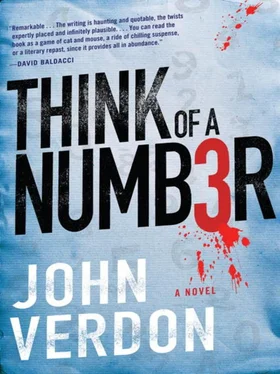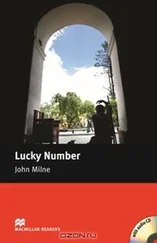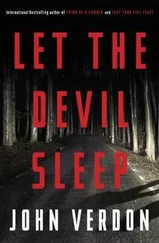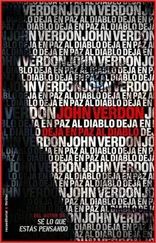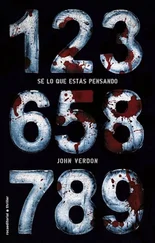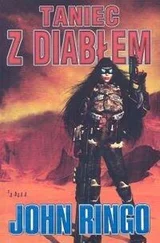“Emerald Cottage was my creation and my exclusive responsibility. Mr. Plumstone is responsible for Honeybee Cottage, including its unfortunate decor.”
“Sorry?”
“The theme of Honeybee Cottage is a bore-you-blind illustrated history of beekeeping. Need I say more?”
“One last question, sir. Do you have the bird-watcher’s name and address in your guest register?”
“I have the name and the address he gave me. Considering the theft, I rather doubt their authenticity.”
“I’d better look at the register and make a note of them, anyway.”
“Oh, there’s no need to look at the register. I can see it now with perfect, painful clarity. Mr. and Mrs.-odd way, don’t you think, for a gentleman to describe himself and his mother?-Mr. and Mrs. Scylla. The address was a post-office box in Wycherly, Connecticut. I can even give you the box number.”
A routine call from the Bronx
Gurney was sitting in the spotless gravel parking area. He’d completed his call to BCI for an evidence team to be sent to The Laurels ASAP and was just slipping his cell phone into his pocket when it rang. It was Ellen Rackoff again. First he gave her the news about the Scylla couple and the peculiar theft to pass along to Kline. Then he asked why she’d called. She gave him a phone number.
“It’s a homicide detective from the Bronx who wants to talk to you about a case he’s working on.”
“He wants to talk to me?”
“He wants to talk to someone on the Mellery case, which he read about in the paper. He called the Peony police, who referred him to BCI, who referred him to Captain Rodriguez, who referred him to the district attorney, who referred him to you. His name is Detective Clamm. Randy Clamm.”
“Is that a joke?”
“I wouldn’t know about that.”
“How much information did he volunteer about his own case?”
“Zero. You know how cops are. Mostly he wanted to know about our case.”
Gurney called the number. It was answered on the first ring.
“Clamm.”
“Dave Gurney, returning your call. I’m with the district attor-”
“Yes, sir, I know. Appreciate the quick response.”
Although he was basing it on next to nothing, Gurney had a vivid impression of the cop on the other end-a fast-thinking, fast-talking multitasker who, with better connections, might have ended up at West Point instead of the police academy.
“I understand you’re on the Mellery homicide,” the crisp young voice raced on.
“Correct.”
“Multiple stab wounds to the victim’s throat?”
“Correct.”
“Reason for my call is a similar homicide down here, and we wanted to rule out the possibility of any connection.”
“By similar, you mean-”
“Multiples to the throat.”
“My recollection of Bronx stabbing statistics is that there are over a thousand reported incidents a year. Have you looked for connections closer to home?”
“We’re looking. But so far your case is the only one with over a dozen wounds, all to the same part of the body.”
“What can I do for you?”
“Depends on what you’re willing to do. I was thinking it might help both of us if you were able to come down here for a day, look at the crime scene, sit in on an interview with the widow, ask questions, see if anything rings a bell.”
It was the definition of a long shot-more far-fetched than many a tenuous lead he’d wasted his time chasing down in his years at the NYPD. But it was a constitutional impossibility for Dave Gurney to ignore a possibility, however flimsy it might be.
He agreed to meet Detective Clamm in the Bronx the following morning.
Back to the Beginning
The cleansing to come
The young man leaned back into the deliciously soft pillows propped against the headboard and smiled placidly at the screen of his laptop .
“Where’s my little Dickie Duck?” asked the old woman next to him in the bed .
“He’s in his happy beddy-bye, planning how the monsters die.”
“Are you writing a poem?”
“Yes, Mother.”
“Read it out loud.”
“It isn’t finished.”
“Read it out loud,” she said again, as though she’d forgotten she’d said it before .
“It’s not very good. It needs something more.” He adjusted the angle of the screen .
“You have such a beautiful voice,” she said as if by rote, absently touching the blond ringlets of her wig .
He closed his eyes for a moment. Then, as though he were about to play a flute, he licked his lips lightly. When he began to speak, it was in a lilting half-whisper .
“These are some of my favorite things:
the magic change a bullet brings ,
the blood that spurts out on the floor
until there isn’t any more ,
their eyes for an eye, their teeth for a tooth ,
the end of it all, their moment of truth ,
the good that I’ve done with that drunkard’s gun-
all nothing compared to the cleansing to come.”
He sighed and stared at the screen, wrinkling his nose. “The meter isn’t right.”
The old woman nodded with serene incomprehension and asked in a coy little-girl voice, “What will my little Dickie do?”
He was tempted to describe “the cleansing to come” in all the detail in which he imagined it. The death of all the monsters. It was so colorful, so exciting, so… satisfying! But he also prided himself on his realism, his grasp of his mother’s limitations. He knew that her questions required no specific answers, that she forgot most of them as soon as she uttered them, that his words were mainly sounds, sounds she liked, found soothing. He could say anything-count to ten, recite a nursery rhyme. It really made no difference what he said, so long as he said it with feeling and rhythm. He always strove for a certain richness of inflection. He enjoyed pleasing her .
A hell of a night
Every so often Gurney would have a dream that was achingly sad, a dream that seemed to be the heart of sadness itself. In these dreams he saw with a clarity beyond words that the wellspring of sadness was loss, and the greatest loss was the loss of love.
In the most recent version of the dream, little more than a vignette, his father was dressed as he’d been dressed for work forty years ago and in all respects looked exactly as he had then. The nondescript beige jacket and gray pants, the fading freckles on the backs of his large hands and on his rounded receding forehead, the mocking look in the eyes that seemed focused on a scene occurring somewhere else, the subtle suggestion of a restlessness to be on his way, to be anywhere but where he was, the odd fact that he said so little yet managed to convey with his silence so much dissatisfaction-all these buried images were resurrected in a scene that lasted no more than a minute. And then Gurney was part of the scene as a child, looking at that distant figure pleadingly, pleading with him not to leave, warm tears streaming down his face in the intensity of the dream-as he was sure they’d never done in the actual presence of his father, for he could not remember a single expression of strong emotion ever passing between them-and then awakening suddenly, his face still bathed in tears, his heart hurting.
He was tempted to wake Madeleine, tell her about the dream, let her see his tears. But it had nothing to do with her. She’d barely known his father. And dreams, after all, were only dreams. Ultimately they meant nothing. Instead he asked himself what day it was. It was Thursday. With this thought came that quick, practical transformation of his mental landscape that he’d come to rely on to sweep away the residue of a disturbing night and replace it with the reality of things to be done in the daylight. Thursday. Thursday would be occupied mainly with his trip to the Bronx-to a neighborhood not far from the neighborhood where he’d grown up.
Читать дальше
